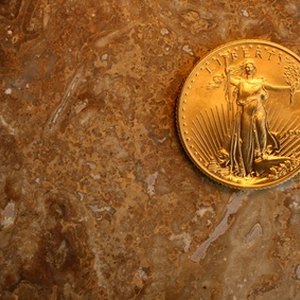
During hard times, buying gold is a protection against inflation. However, rules exist to make sure the U.S. government can still track and obtain gold as needed or to collect sales taxes.
The Past
In 1933 the U.S. government made it illegal for individuals to own gold. The federal government was attempting to protect the U.S. dollar value from dropping; the currency was still connected to the gold standard at the time. Under President Nixon, Americans were again free to own gold again in the 1970s.
Purchases Over $10,000
When a gold cash purchase occurs within the U.S. exceeding $10,000, it must be reported to the Internal Revenue Service (IRS). It's not hard to reach this amount today; with gold in 2010 reaching over $1,200 an ounce, nine coins easily exceed the trigger point.
Tax Reporting
Commercial sales of 25 ounces or more have to be reported to the IRS, but private sales do not. Florida, however, has initiated the first purchase identification requirement, increasing documentation tracking of all sellers within the state, including Internet sales.
As of 2012, new purchases and sales of gold bullion must be disclosed so that the IRS can capture sales income otherwise previously unreported. This will affect all individual sales over $600.
References
- ABC News: Gold Coin Dealers Angered by New Tax Laws
- Certified Mint: Gold Confiscation
- Cash4Gold: Cash4Gold in Compliance with First Ever Gold-Buying Law
- Office of the Historian. "Nixon and the End of the Bretton Woods System, 1971–1973." Accessed May 28, 2020.
- National Audit Office. "The Sale of Part of the UK Gold Reserves." Accessed May 28, 2020.
- U.S. International Trade Commission. "Floating Exchange Rates and U.S. Competitiveness," Page 10, 11. Accessed May 28, 2020.
Writer Bio
Since 2009 Tom Lutzenberger has written for various websites, covering topics ranging from finance to automotive history. Lutzenberger works in public finance and policy and consults on a variety of analytical services. His education includes a Bachelor of Arts in English and political science from Saint Mary's College and a Master of Business Administration in finance and marketing from California State University, Sacramento.

